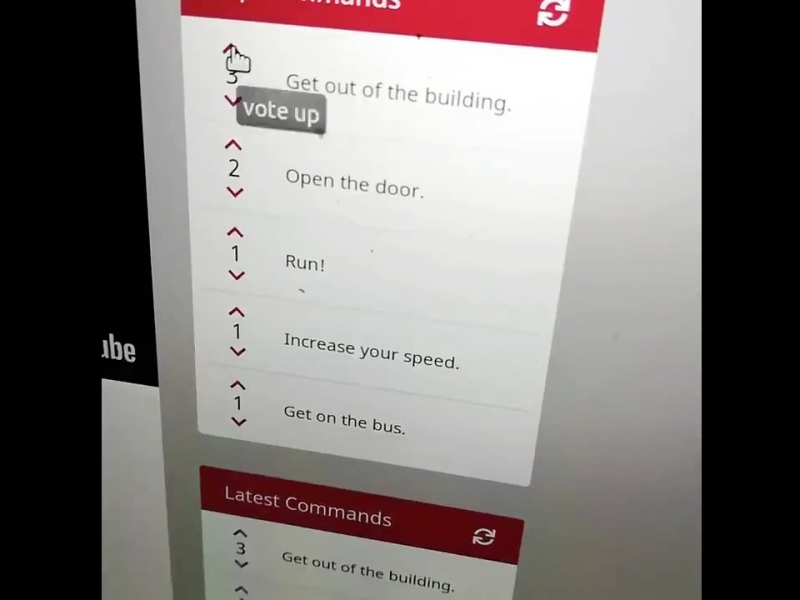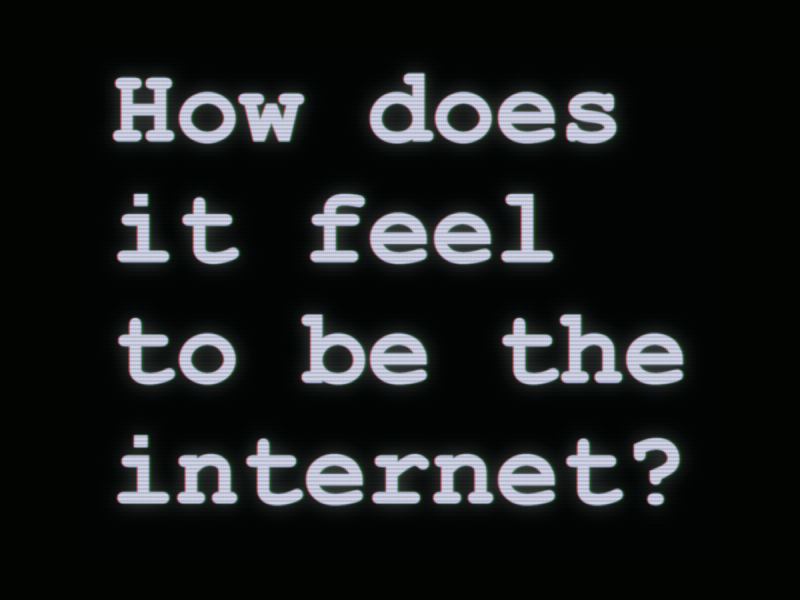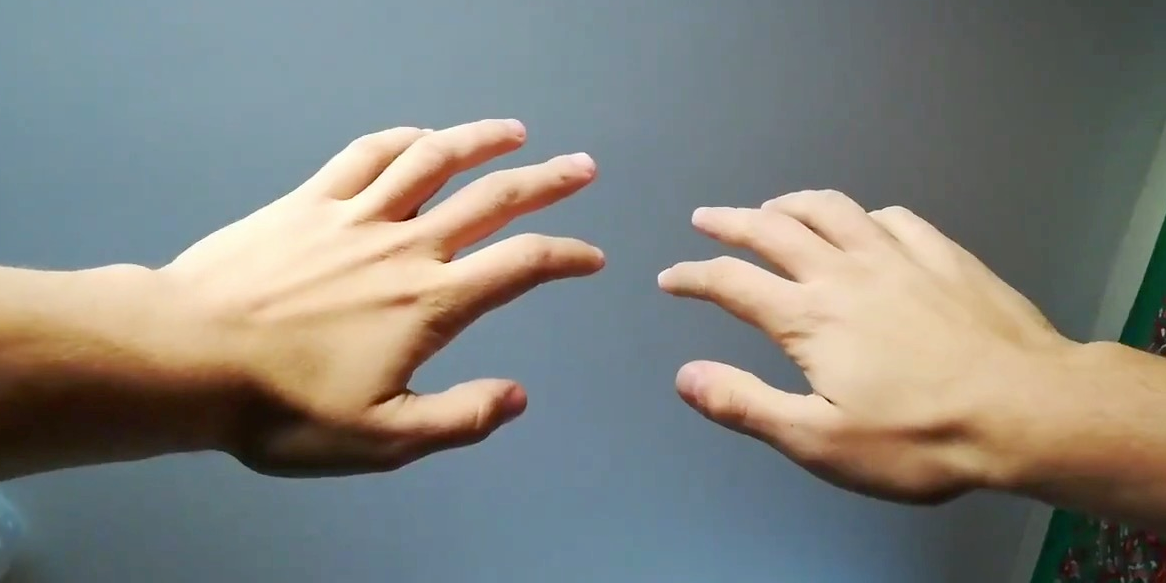- For Halloween, the MIT Media Lab is hosting a mass online social experiment at 11 p.m. EDT tonight.
- Called “BeeMe,” the goal of the “dystopian game” is to let participants control an actor and defeat an evil artificial intelligence program.
- Internet users will program the actor by crowdsourcing commands and then voting on them.
- BeeMe’s creators say they want the project to stoke conversations about privacy, ethics, entertainment, and social interactions.
This Halloween, the creepiest event to attend might be a mass online social experiment hosted by researchers at the Massachusetts Institute of Technology.
MIT is famous for churning out some of the world’s top engineers, programmers, and scientists. But the university’s Media Laboratory is increasingly known for launching experimental projects in October that are designed to make us squirm.
In 2016, researchers at the MIT Media Lab created the artificial-intelligence program Nightmare Machine, which converted normal photos into into macabre images. (The results were predictably creepy.) Then in 2017, a researcher made AI software called “Shelley” that learned how to write its own horror stories. (These were also creepy.)
This year, members of MIT Media Lab are taking their desire to freak us out to the next level with a project called “BeeMe.”
BeeMe is described in a press release as a "massive immersive social game" that aims to "shed a new light on human potential in the new digital era." But it also sounds like a choose-your-own-adventure episode of the show "Black Mirror."
"Halloween night at 11 p.m. ET, an actor will give up their free will and let internet users control their every action," Niccolò Pescetelli, who studies collective intelligence at MIT Media Lab, told Business Insider in an email about BeeMe.
Pescetelli added: "The event will follow the story of an evil AI by the name of Zookd, who has accidentally been released online. Internet users will have to coordinate at scale and collectively help the actor (also a character in the story) to defeat Zookd. If they fail, the consequences could be disastrous."
How MIT will let you control a person

The project's slogan is: "See what I see. Hear what I hear. Control my actions. Take my will. Be me."
The full scope of gameplay is not yet public. However, Pescetelli, BeeMe's social media accounts, and promotional materials reveal a few key details.
The person being controlled will be a trained actor, not anyone randomly selected. Who that actor will be and where they will be located won't be disclosed, Pescetelli said. He said he expects the game to last about two hours, but added "it will be the audience who ultimately decides" how long the game will go on.
There will be limits to what crowd-generated commands can make the actor do.
"Anything that violates the law or puts the actor, their privacy, or their image in danger is strictly forbidden," Pescetelli said. "Anything else is allowed. We are very curious about what [is] going to happen."

Participants will control the actor through a web browser, in two ways.
One is by writing in and submitting custom commands, such as "make coffee," "open the door," "run away," and so on. The second way is by voting up or down on those commands, similar to the system used by Reddit. Once a command is voted to the top, the actor will presumably do that very thing.
This is the origin of the word "bee" in the project's name: Internet users will have to act collectively as a "hive" to progress through the game.
BeeMe's Twitter account shared an eerie teaser video of the game on October 15.
"Many people have played an augmented reality game, but BeeMe is reality augmented," Pescetelli said in a press release. "In BeeMe an agent gives up their free will to save humanity - or perhaps to know whether humanity can be saved at all. This brave individual will agree to let the Internet pilot their every action."
The whole event will be broadcast live at beeme.online.
"In theory there is no limit to the number of users that the platform can support, but we will know for sure only on Halloween," Pescetelli said.
Why the researchers created BeeMe

The BeeMe project is made by eight people, will cost less than $10,000, and quietly went public in May 2018, when it joined Twitter as @beeme_mit. The tweets posted by the account capture some of its thinking and evolution.
One tweet quotes philosopher Marshall McLuhan, who famously wrote in 1964 that "the medium is the message" - meaning that any new way to communicate influences what we say, how we say it, and ultimately what we think. McLuhan, who lived until 1980, is described by his estate as "the father of communications and media studies and prophet of the information age."
The account also references other visionaries, including analytical psychologist Carl Jung, social scientist Émile Durkheim, and biologist Charles Darwin.
"[In] the long history of humankind (and animal kind, too) those who learned to collaborate and improvise most effectively have prevailed," BeeMe tweeted in August, quoting a famous saying of Darwin's (and likely as a tip on how to win the game).
Another tweet highlights a shocking act of performance art called "Come Caress Me," created in 2010 by Amir Mobed. In the installation, Mobed stands before a huge target with a metal bucket on his hed, and volunteers are led into the room to shoot him with a pellet gun. (Many do, not seeming to understand the ammunition is real.)
These and other BeeMe posts seem to reflect what the experiment strives to be on Halloween: Something that is on its surface fun, but reveals some hidden truths about ourselves and our digital society.
In a release sent to Business Insider, the project described itself this way: "BeeMe is a dystopian game that promises to alter the face of digital interactions, by breaking the Internet's fourth wall and bringing it back to reality. BeeMe wants to reopen a serious - yet playful - conversation about privacy, ethics, entertainment, and social interactions."
Whatever the game ends up teaching those who play or watch it, we'll find out tonight if humanity can pull together to save itself - or fail in dramatic disarray.
This story has been updated with new information.

